In our current society, it is rare for someone to have skills and traits that extend across industries and crafts. Rarely do we see an inventor moonlight as a politician or an author make a startling discovery in the sciences. Benjamin Franklin was the quintessential Renaissance man: a person whose expertise spans a significant number of different subject areas. His intellectual curiosity saw him tackle many paths and make great contributions to many fields. As a result, Benjmain Franklin will probably forever be remembered as one of the coolest and greatest Founding Fathers.
10. Establishment of Newspaper
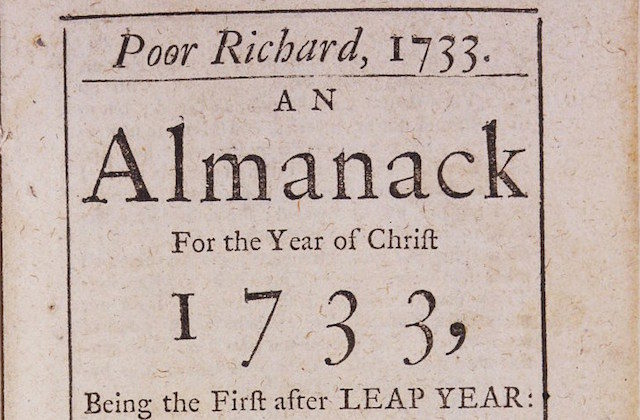
After working as an apprentice to his older brother at a print shop, Benjamin Franklin left Boston for Philadelphia, where he bought his own shop. During his time apprenticing for his brother, he worked earnestly as a writer and established himself as a humorist and satirist, skills he would carry over to his own newspaper. The Pennsylvania Gazette, his weekly newspaper, and Poor Richard’s Almanack were both successes.
The Almanack sold nearly 10,000 copies – a staggering figure for colonial times. As a result of his great success as a newspaper man, Franklin was able to retire at the ripe age of 42 years old. Franklin’s ability to be financially set at such an early age was a major factor in his ability to have such success in other fields.
9. Refused Patent on Stove
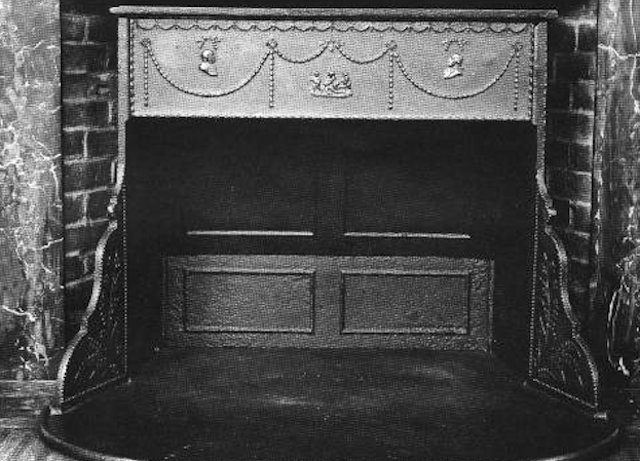
Not only was Franklin an extremely intelligent individual, but he also had a moral compass. In our current society, individuals and businesses take out patents for all sorts of ideas, realized and unrealized, in order to secure profits while stifling creativity and human well-being. Franklin was opposed to patents on principle, demonstrated by his refusal to take out patent on Pennsylvania Fireplace, better known as the Franklin Stove.
In his autobiography, Franklin said, “as we enjoy great advantages from the inventions of others, we should be glad of an opportunity to serve others by any invention of ours; and this we should do freely and generously.” As a result of Franklin’s view, the stove was able to improve in its functionality as individuals did not have to get the patent rights to improve ventilation problems that occurred in individual design.
8. Fire Department
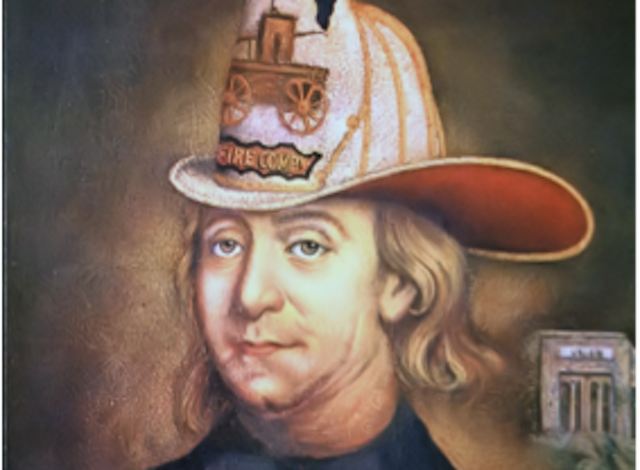
If another example was needed of Franklin’s great sense of public service, he was the founding member of a volunteer Fire Department in America in 1736. The volunteers were called the Union Fire Company, but were also known as “Benjamin Franklin’s Bucket Brigade.” Franklin even put his past writing skills to good use, publishing an anonymous letter in the Pennsylvania Gazette telling fellow citizens that “an Ounce of Prevention is worth a Pound of Cure.”
In addition, Franklin and his volunteers founded, “The Philadelphia Contributionship” – a mutual insurance company, one in which policyholders would come together to share the risks. It is interesting that even in business ventures, Franklin was not interested in exploiting consumers but establishing something that was mutually beneficial.
7. Treaty of Paris
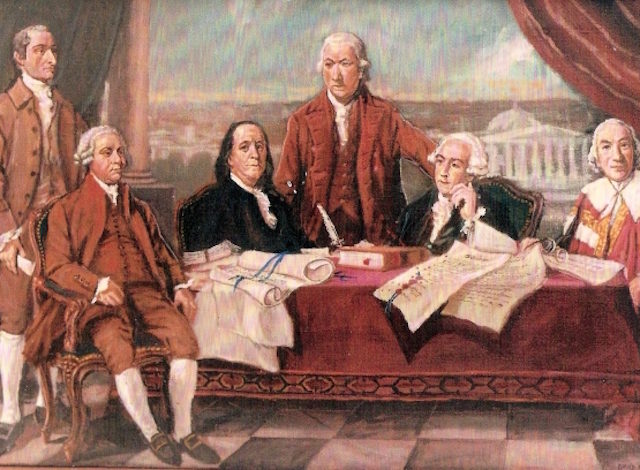
Many of our readers are aware that Benjamin Franklin signed the Declaration of Independence and the United States Constitution. However, he was also responsible for manufacturing a lesser known document that provided the financial support for the colonies to fight against the British Empire. In 1781, Benjamin Franklin was in France serving as Minister to that country. He managed to negotiate an alliance between the French and the united colonies that served as the beginnings of the relationship between the two nations.
Later, Franklin would be instrumental in signing a Treaty of Alliance and a Treaty of Amity and Commerce with France. The treaties represented one of the first international recognitions of the sovereignty of the United States. Without Franklin’s work securing financial assistance, who knows if a revolution would have been even remotely possible?
6. First American Instrument
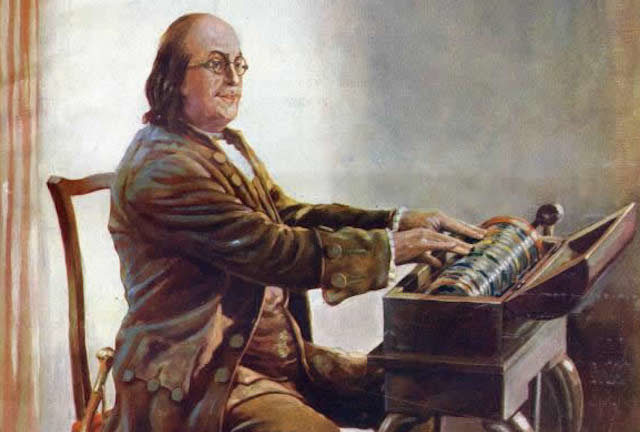
One of the truest demonstrations that Benjamin Franklin was a renaissance man was his design of the first unique American instrument – the glass harmonica. The reason it is such an interesting contribution by Franklin is that it so different from his other areas of influence. In 1761, the glass harmonica was revealed and as Franklin put it, it was the first instrument to be “born” in America. A modification from the old glass bowl organ, Franklin’s design allowed for the bowls to be set sideways and overlapping, using a foot pedal.
The new design allowed for easily playing as many as 10 bowls at the same time. It was an extremely popular instrument and some music written expressly for the glass harmonica was composed by such legends as Mozart and Beethoven.
5. The Junto
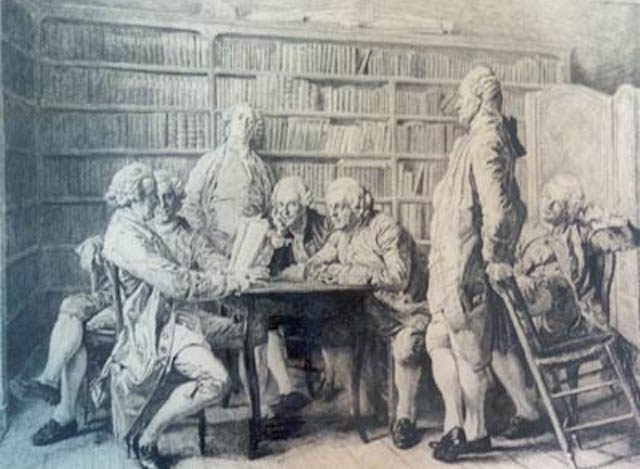
One of the coolest facts about Benjamin Franklin, particularly for our young adult readers was his establishment of the Junto (“to join”). The Junto was created by Franklin when he was 21, and consisted of a group of 12 men, from different backgrounds, who met on Fridays to drink and debate ideas ranging from philosophy to the arts. As a result of debate and collaboration, several great ideas were produced including the establishment of several firsts: lending library, fire department, public hospital, and the University of Pennsylvania.
Just goes to show you grabbing a beer and talking amongst your friends can have some great benefits. Another great fact to take away from the Junto is that collaboration and exchange of ideas can serve as a catalyst for growth rather than competition.
4. Declaration of Independence & the Constitution
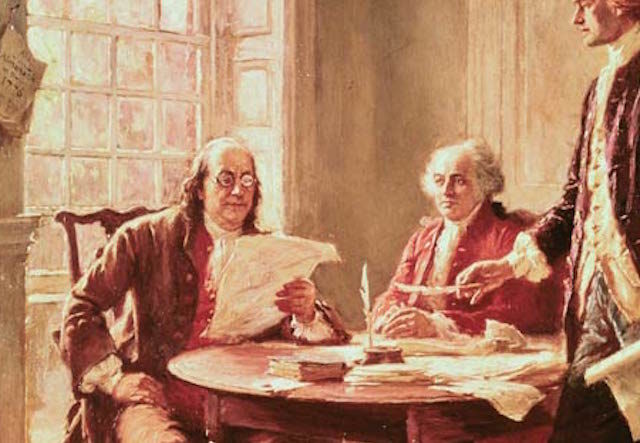
One of the most revolutionary documents in history, the Declaration of Independence, was adopted on July 4, 1776. With it, the founding fathers declared that the 13 American colonies were no longer part of the British Empire but sovereign states. Because of Benjamin Franklin’s talent in so many areas, sometimes it is easy to forget his in the drafting of the Declaration of Independence and the foundation of our nation. Franklin was appointed by the Continental Congress to a committee charged with drafting a formal document to justify the colonies’ decision of severing political ties with Britain. After Thomas Jefferson wrote the declaration of independence, he sent it to Franklin for review. Not surprisingly, Benjamin Franklin was one of 55 men who signed the declaration, setting the course for the Revolutionary War.
As an elder statesman, Franklin was not as heavy involved in the Constitution as other delegates but he still had a strong influence and was looked upon with reverence and great respect. His most important contribution came with advocating for freedom of speech for our nation’s citizens. Benjamin Franklin would sign the Constitution at the ripe age of 81 and would be oldest signee of the founding document of the American government.
3. Various Inventions
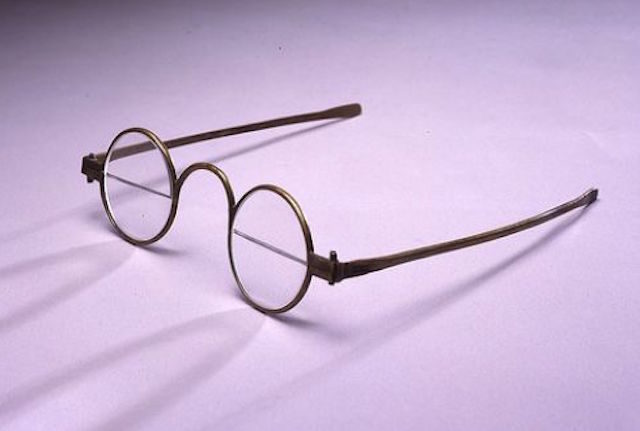
While we’ve mentioned many of his inventions on this list already, we’d be remiss if this wasn’t its own category. Sitting in a rocking chair while you’re reading this article? Well you’ve got our friend Mr. Benjamin Franklin to thank for that. He fitted the arms of his armchair with curved pieces of wood and the rocking chair was born. Wearing glasses while you read this article? Once again, you have Mr. Benjamin Franklin to thank for his invention of bifocals. Franklin wrote to his friend in 1784, “happy in the invention of double spectacles, which serving for distant objects as well as near ones, make my eyes as useful to me as ever they were.”
He seems to be an infinitely curious man, and as a result of that curiosity he was able to bless the colonies with great inventions.
2. Pseudonyms
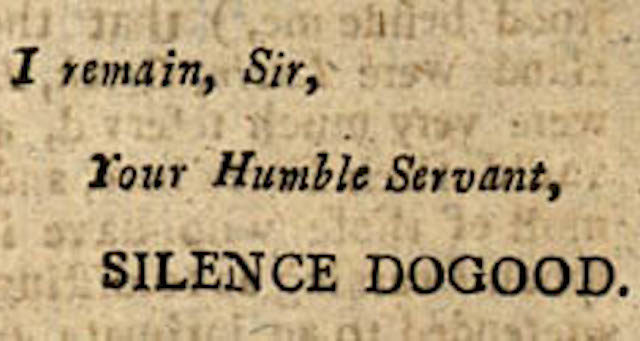
One of the funniest facts about Benjamin Franklin was his use of pseudonyms to get his work published in his brother’s newspaper. A bit of sibling rivalry existed between Ben and his older brother James, who refused to publish his brother’s work despite its obvious quality. So, Ben did what any rebellious younger brother would do – he created a pseudonym. He submitted 14 letters under the name “Mrs. Silence Dogood” – supposedly a middle-aged widow.
The letters were extremely popular with the paper’s readers, even resulting in several marriage proposals. As his writing became more radical, Franklin took on more pseudonyms. He would go on to have many aliases including: Harry Meanwell, Alice Addertongue, The Prophet of Tolerance, Richard Saunders, and Timothy Turnstone.
1. Electricity
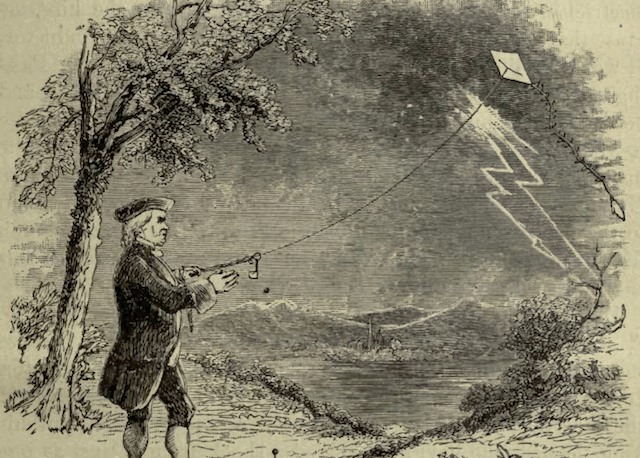
One of the notable discoveries of the time was Franklin’s in regards to electricity. Previously, the prevailing thought was that electricity was composed of two opposing forces. However, Franklin was able to show that electricity consisted of a “common element” which he named “electric fire.” His work served as the basis of single fluid theory, and as a result of the novelty of his observations, he coined terms and language such as: battery, conductor, charge, condenser, and many more.
A very cool fact about his famous kite experiment is that it almost killed him. Twice. That’s how determined and curious Franklin was – the only thing that kept him from dying during the experiment was that he didn’t receive a strong enough charge.
2 Comments
The link to this is switched with the holiday toy one, or the bounds for that link overrule this one. had to get her from the next article hitting previous
Where was the link that was doing this? I checked the home page and the right column link. Both worked.